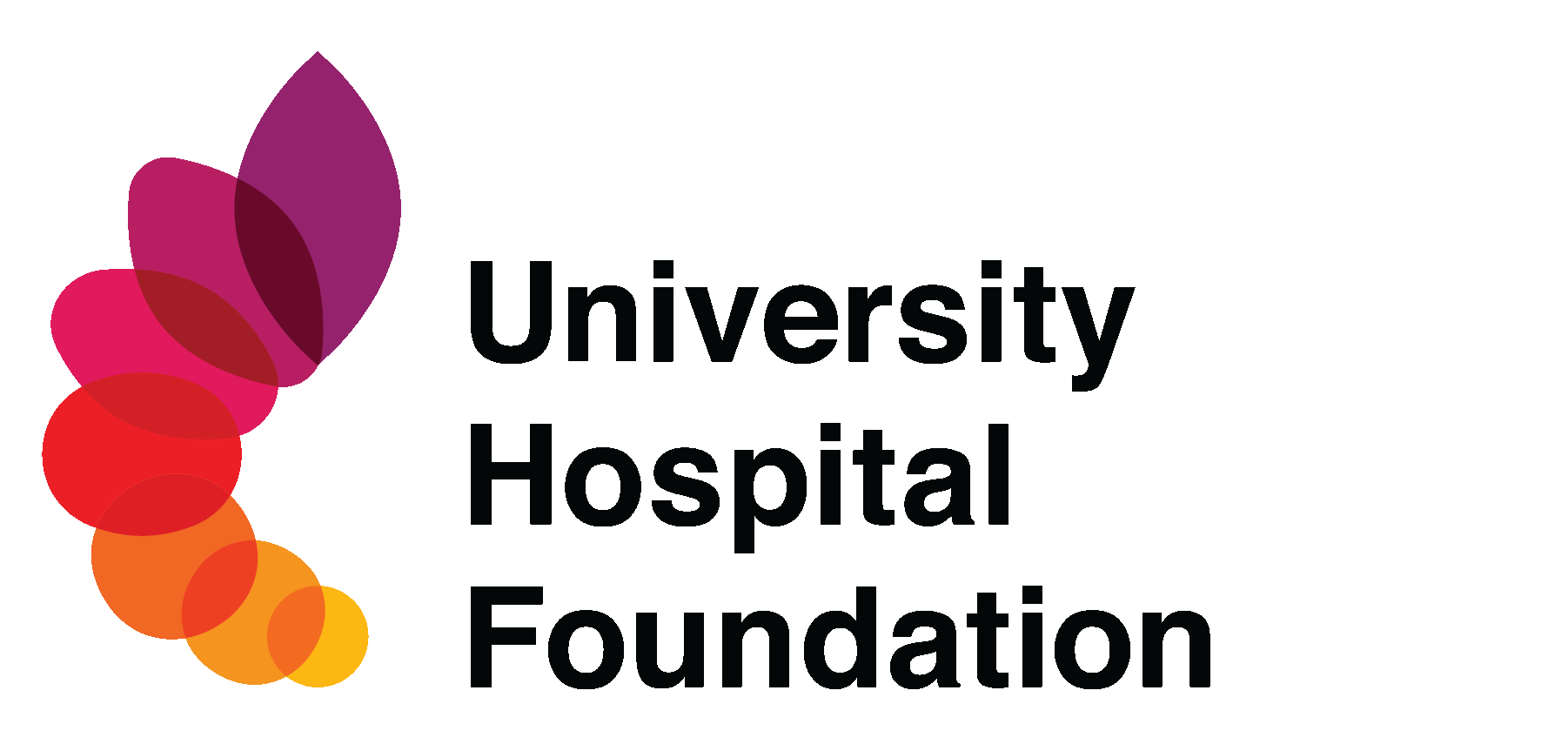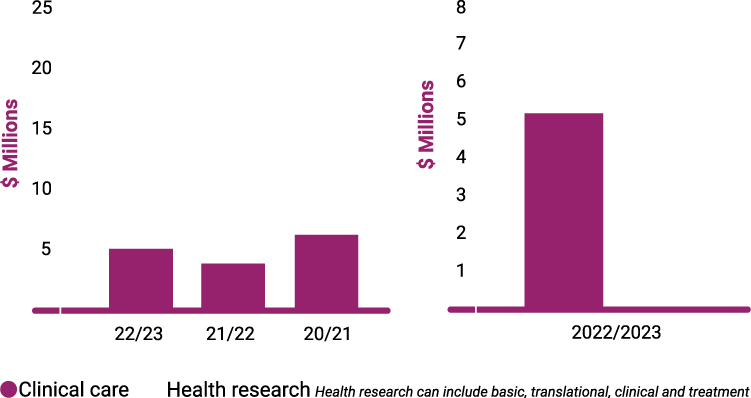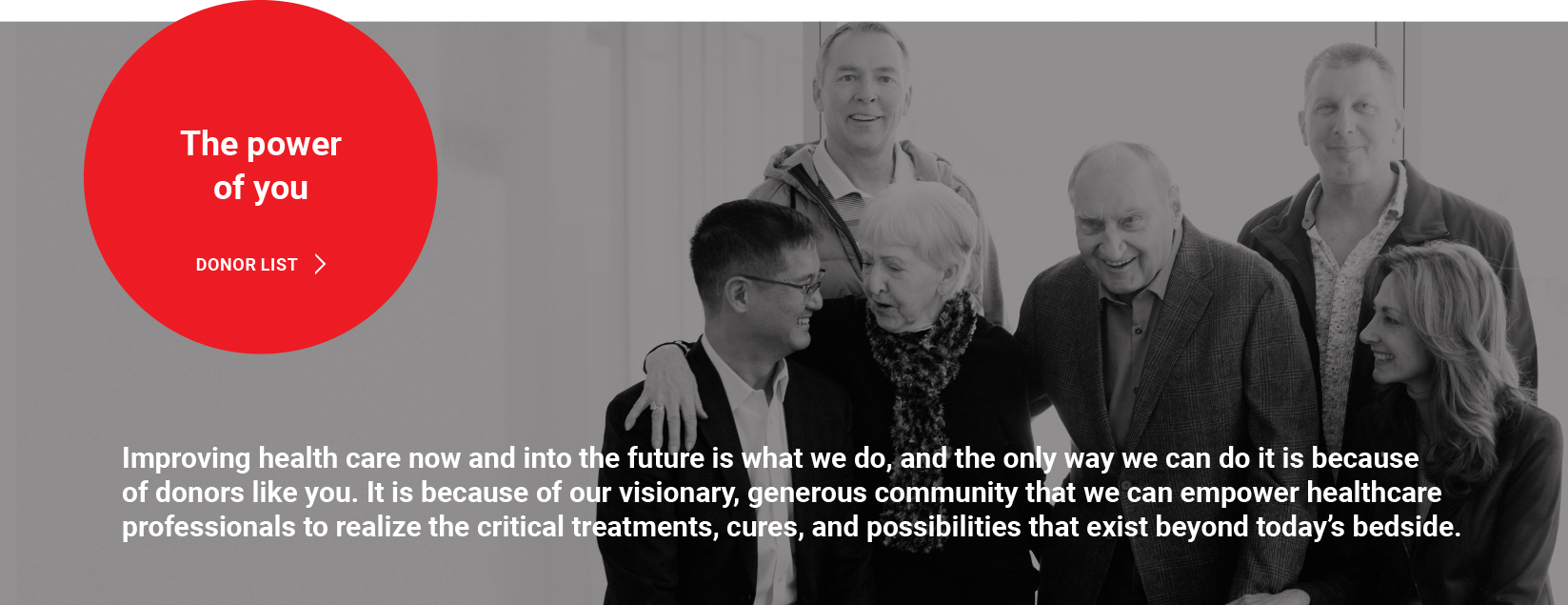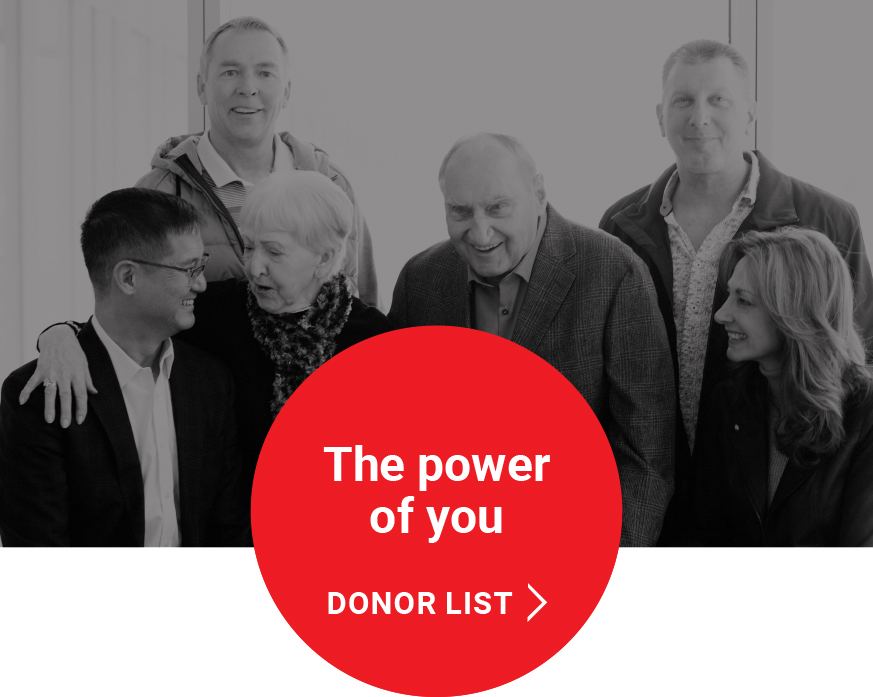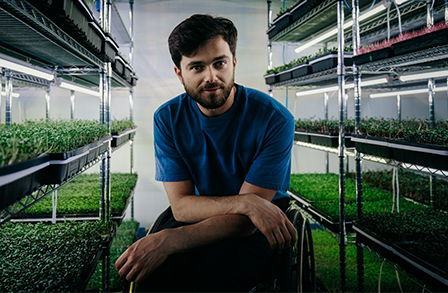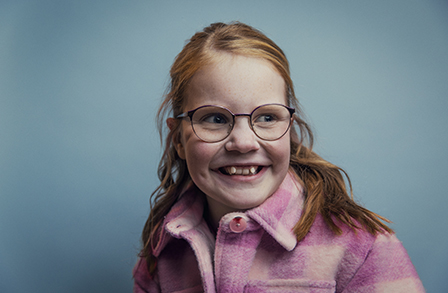- 1-833-448-3843 Make a call.
- info@givetouhf.ca Drop us an email.
- We are located in Edmonton, Alberta
A year of transformation
2022/2023 Annual Report
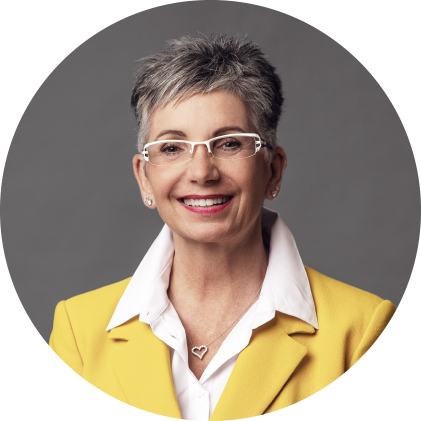
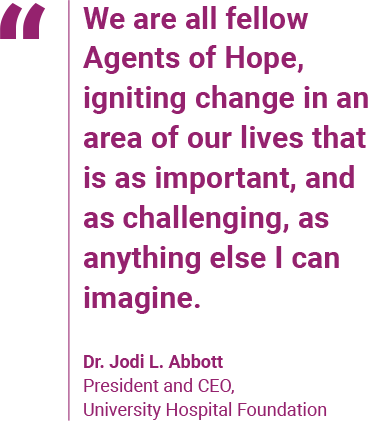
Message from Dr. Jodi Abbott, President and CEO of the University Hospital Foundation
2022 was an exhilarating year of transition, hope and accomplishment for the University Hospital Foundation (UHF).
We launched our exciting new brand and with it, ignited our bold purpose to transform and redefine health – no small feat, but together, I firmly believe we can make it happen.
In fact, we have already started.
Thanks to incredible community support, we advanced critically important initiatives at the University of Alberta Hospital (UAH) that will have direct bearing on the delivery of patient care and add new dimensions to medical research.
In the Major Investments section of this Annual Report, you will read about how a new, world-class Simulation Centre will enable healthcare teams in every area of care at the UAH to practice challenging techniques, procedures and even surgeries, using the most sophisticated equipment and technology available. That means your generosity has played a role in giving our fearless doctors and hospital staff the chance to develop and perfect new ways of administering care without risk. In health care, there is no better way to learn and grow than that.
You will also read about how your support is making our province a leader in artificial intelligence (AI) by supporting research and innovation led by Dr. Ross Mitchell, a renowned expert in the AI world, and the inaugural Alberta Health Services Chair in AI in Health.
With great joy and excitement, we held our first live, in-person Festival of Trees in two years – a wonderful and welcome return of some Festival favourites. You can read about the success of Festival of Trees and our other cornerstone fundraising event – Heart Month – in the Events section.
We also moved forward with several of our Strategic Partnerships, critical collaborations that allow us to take on monumental health challenges on the provincial level and beyond.
As always, everything we do at UHF is thanks to you – our loyal donors, sponsors, volunteers, colleagues, partners and ambassadors.
We are all fellow Agents of Hope, igniting change in an area of our lives – health and health care – that is as important, and as challenging, as anything else I can imagine.
Your belief and support in what we do, demonstrated by a record-breaking number of donations, is our daily inspiration.
I hope you enjoy our 2022-23 Annual Report.

834,203 outpatient visits in 2022/23 to the University of Alberta Hospital
72,383 unique patient visits to the University of Alberta Hospital from outside of Edmonton in 2022/23
6,712 admissions to critical care units at the University of Alberta Hospital in 2022/23
363 transplants performed at the University of Alberta Hospital in 2022/23


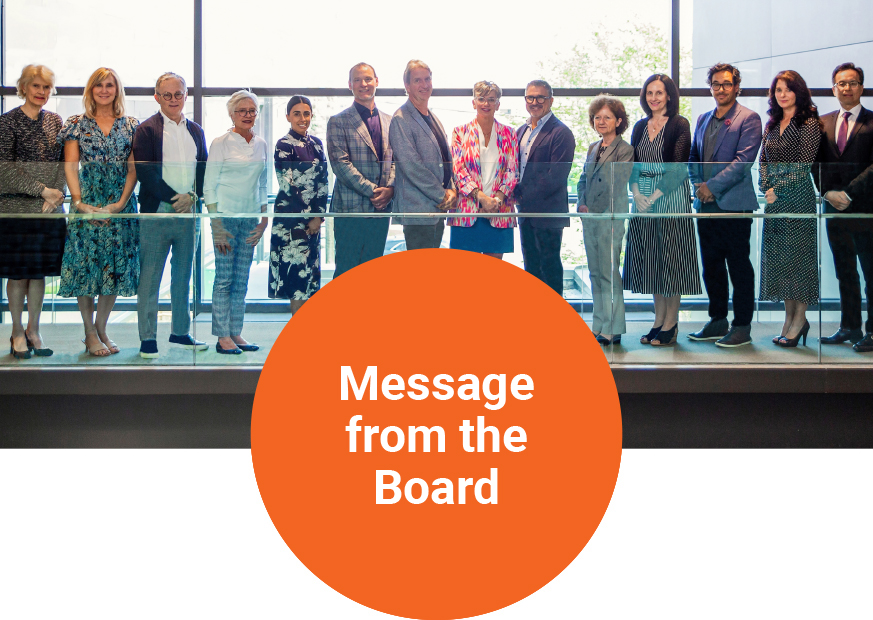
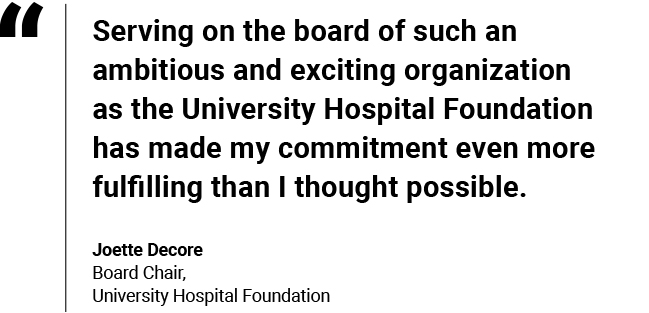
I would like to start my final message as Board Chair of the University Hospital Foundation with my story of why I became a volunteer.
Many years ago, my husband Lyndon was involved in a terrifying skiing accident. Without the heroic efforts of emergency medical responders, he would have died right there on the ski hill. As it was, after he was stabilized, he was flown to the University of Alberta Hospital. Then came the hardest part of all, for me at least – the excruciating wait to see if he would survive. It was during this time that I felt most helpless, and I made the promise that I would do anything and everything to give back if Lyndon made it through. Happily, he did survive, and, true to my word, I am giving back to the people and the hospital that saved his life.
Serving on the Board of such an ambitious and exciting organization as UHF has made my commitment even more fulfilling than I thought possible. The past year has realized more incredible accomplishments such as the launch of a vibrant new UHF brand, raising over $2M during Festival of Trees, and commit over $10.5M to new transformative health projects. We are poised to make even greater advancements on Ignite 2030, our bold strategic plan for the next decade.
To guide us along the way, it gives me great pleasure to introduce our new incoming Chair, Dr. Shelley Scott. Shelley has served as a Board member since 2016. A former anesthetist at the UAH, Shelley brings with her a rare and invaluable combination of skills and experience, topped by her glowing optimism and a steadfast determination that will serve UHF incredibly well in the years ahead.
In closing, I want to thank the UHF staff; every single one of our incredibly dedicated volunteers; my friends and colleagues on the Board; our incomparable donors, corporate sponsors and partners; and of course, the amazing healthcare teams at the University of Alberta Hospital – not only for saving my husband’s life, but for inspiring such transformational generosity, and giving us such hope for the future.
Financial Highlights
Success stories like Patricia Kaliciuk’s that unfold every day at the University of Alberta Hospital would not be possible without the finances to support their care.
Sister Patricia Kaliciuk woke up one morning with a nosebleed. It was very untimely. As Principal of an all-girls school in Saskatchewan, she had a lot to do. More importantly, she found tremendous reward in her work and wanted it to continue “forever”. But the nosebleed wouldn’t stop. Doctors in Saskatoon were stumped so they sent her to the University of Alberta Hospital where she was diagnosed with pulmonary arterial hypertension, and told she needed a double-lung transplant to survive.
Thanks to extraordinary community support, the University of Alberta Hospital (UAH) is home to one of the most comprehensive transplant programs in North America, if not the world. Pulmonary specialists Dr. Dale Lien and Dr. Justin Weinkauf provided the life-saving care Patricia needed until a matching set of lungs were donated. That was 16 years ago. Today, Patricia is enjoying her life and grateful for the care she received.
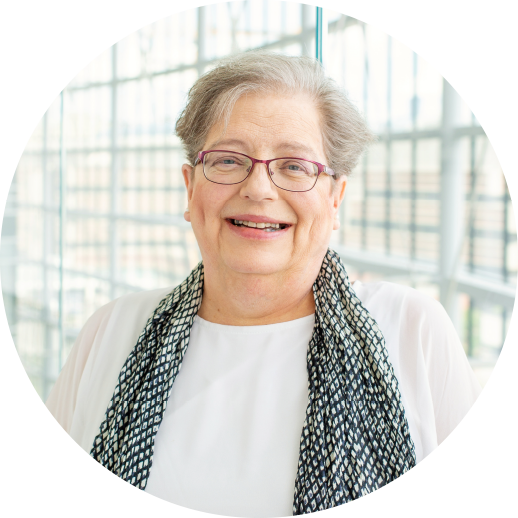
Sources of revenue
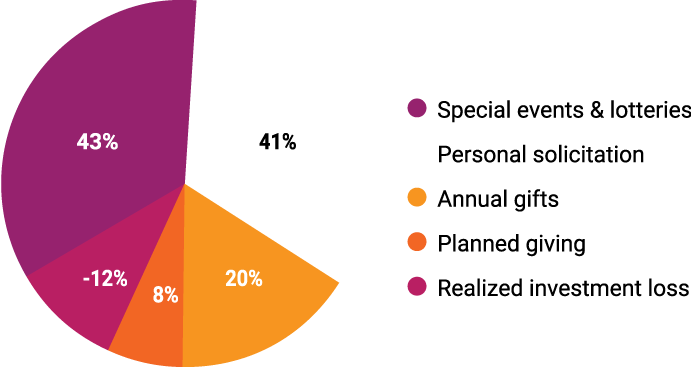
Major Investments
Major innovation in health care relies on major investment from the community. Powered by tremendous community support, the University Hospital Foundation (UHF) committed $9.5 million in future distributions to advance two critical initiatives that will transform and redefine the delivery of health care in Alberta – and around the world for generations. Success stories like Patricia’s that unfold every day at the UAH would not be possible without the finances to support their care.
SIMply amazing
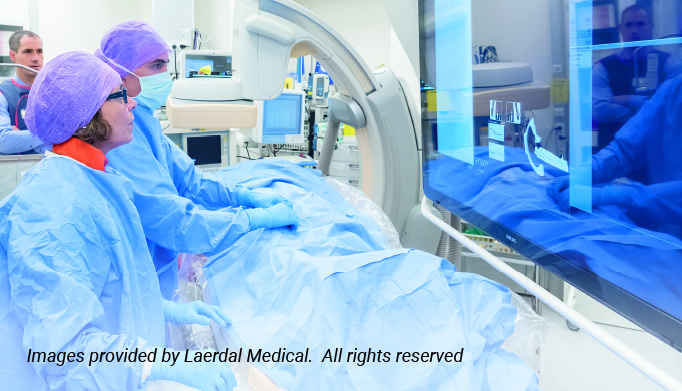
Thanks to extraordinary community support, more than $8 million has been raised for the University of Alberta Hospital, towards the design of a SIM centre that will benefit every aspect of patient care, and everyone involved in delivering that care, according to Dr. Derek Townsend, Site Medical Director of the University of Alberta Hospital, Mazankowski Alberta Heart Institute, and the Kaye Edmonton Clinic. “Continuing donor support through the University Hospital Foundation has played an integral role in the development of this program. It is very much appreciated.”
To be located at the UAH, the SIM Centre will cover over 1,100 square metres and be divided into seven state-of-the-art simulation rooms equipped with the most innovative technologies.
There will also be seven dedicated conference rooms for debriefing and discussion after simulation-based activities, plus an administrative area and a small lounge to support the simulation team, participants and visitors to the Centre.
For Dr. Jodi Abbott, President and CEO of the UHF, supporting the new SIM Centre speaks to the organization’s commitment to transforming and redefining health:
“Having the very best training and education facilities down the hallway from where you work is a great way to become even better at your job and also to see things differently. What if we did this instead of that? What if we tried this approach first? A simulation lab is where you can have those conversations, stop and ask questions, experiment with new ideas, and analyze them in a reality-based yet perfectly safe environment. That is how transformational change happens.”
The modular design concept will provide maximum configuration and versatility to meet the needs and objectives of different departments. Spaces will replicate actual areas within the UAH, including emergency rooms, operating rooms, intensive care units, inpatient rooms and outpatient areas. In addition, the flexible room design can be tailored to suit multiple training needs such as large and small team events, high-fidelity simulations, technical skill acquisition and actor-based simulation.
Family conference areas will be built to allow healthcare providers to practice facilitating sensitive conversations with patients and their families during events such as a family conference after a mental health crisis.
Dr. Townsend identifies five key areas that will benefit from the new Centre. “It’ll improve patient safety, which is our number one focus. It allows us to enhance our skills. It allows us to practice teamwork and communication in an environment that can be quite stressful. It provides an environment that will help us develop a cost-effective way to train healthcare professionals. And then finally, research and development – medical simulation can be used to develop and test new research, medical devices and procedures prior to them being implemented into the healthcare environment.”
“I really cannot wait to take our donors through this fabulous new Centre when it opens and show them the impact of their generosity,” adds Dr. Abbott. “This project would not be happening without their incredible support, and I want them to know that.”
Bringing the best AI research to Edmonton
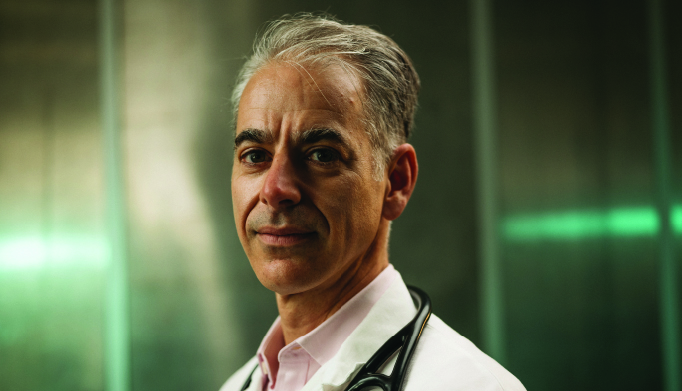
Cardiologists at the Mazankowski Alberta Heart Institute are getting the picture – a clear picture of the heart, that is, thanks to the marvels of artificial intelligence (AI).
Donors to UHF are supporting an AI-based initiative that will help researchers and cardiologists at the Maz, like Dr. Justin Ezekowitz, gather more critical information from images taken of the heart.
“The world of AI has had tremendous impact on our ability to view images and identify new information that our human eyes could not take in or interpret,” says Dr. Ezekowitiz.
“Our goal with funding from UHF is to bring all the cardiovascular research or cardiovascular images onto one platform, like a core lab, and bring them over from the clinical world of things into a research space that has the storage to handle it. Once we have the platform of those clinical images imported over, then the real discovery work can occur.”
“Our donors believe collaboration with our partners at the University of Alberta and the University of Alberta Hospital is critical to improving health outcomes,” says Dr. Jodi Abbott, President and CEO. “Advancements in AI will transform care not only in Alberta but around the world.”
About AI research
Dr. Ross Mitchell spent the better part of a decade working at some of the most prestigious medical research institutions in the United States. Thanks in part to the generosity of donors to UHF, he recently returned to Edmonton to serve as the inaugural Alberta Health Services Chair in Artificial Intelligence (AI) in Health at the University of Alberta and a Fellow of the Alberta Machine Intelligence Institute (AMII) in Edmonton.
What does that mean for you? According to Dr. Jodi Abbott, President and CEO of UHF, it means a lot.
“Bringing the expertise and experience of Dr. Ross Mitchell back to Alberta opens the doors to new discoveries, treatments and approaches to preventing illnesses, and elevates Alberta as a centre of thought leadership in AI and machine learning around the world,” explains Dr. Abbott.
For his part, Dr. Mitchell says funding from UHF will allow him to create a team of experts who will bring their vast knowledge of artificial intelligence and machine learning to the medical world. “There are some wonderful opportunities to do things that require a PhD level of expertise in artificial intelligence, plus an ability to understand the clinical nuances of what’s going on and work with clinicians.”
Dr. Mitchell will seek to use AI techniques in natural language processing to speed the discovery process for clinicians and researchers combing through text-based sources of information such as pathology reports, allowing them to focus on other aspects of patient care. He is also interested in developing a fluid, natural interface for transcribing notes and accessing information, hopefully helping physicians connect more directly with their patients.
Donor List
Strategic Partnerships
The University Hospital Foundation’s Strategic Partnerships bring health innovation leaders from private industry together with Alberta’s provincial health ecosystem, to unite the knowledge of government, academia, philanthropy, and our hospital sites to solve big health challenges.
Through the collaboration and shared vision achieved through Strategic Partnerships, UHF is empowered to enhance the patient journey, transform patient outcomes, and advance bold solutions through evidence and data.
In 2022/2023, the University Hospital Foundations multi-party partnerships with industry and government made some large strides. Noteworthy achievements include:
- ABIC (Boehringer Ingelheim and the Government of Alberta)
- Established in 2019.
- Project focus: Developing solutions to address treatment gaps in the area of chronic obstructive pulmonary disease (COPD) care and its associated co-morbidities including diabetes and heart failure.
- JAHIP (Janssen Pharmaceuticals and the Government of Alberta)
- Established in 2015.
- Project focus: Initially supported research in prostate cancer and various real-world evidence.
- Next phase: To investigate treatments aimed at achieving long-lasting remission for patients with multiple myeloma.
- NOVAD (Novo Nordisk and the Government of Alberta)
- Established in 2018.
- Project focus: Obesity and diabetes research with the ultimate goal of achieving measurable health, economic and social impacts.
- Prairies Economic Development Canada, University of Alberta Faculty of Medicine and Dentistry, Alberta Bone and Joint Institute, and Alberta Machine Intelligence Institute (AMII)
- Project launch in 2021.
- Project focus: To build two health data platforms that will facilitate better management of chronic health conditions, enhance Alberta’s health data capacity and analytics, and train the next generation of health data scientists in Alberta.
UHF’s ongoing collaborations with industry partners continue to make important progress in the health sector. Some key highlights from the 2022/2023 year include:
- Biogen and UHF
- Project launch in 2020.
- Project focus: The project will assist clinicians in choosing the most appropriate therapies for patients with Multiple Sclerosis based on the immune profile of the individual.
- Boehringer Ingelheim and UHF
- Project launch in 2021 & 2022.
- 2021 Project focus: Initial project explores the complexity of Interstitial Lung Disease (ILD) data, care pathways, and development of a biomarker registry.
- 2022 Project focus: To investigate facilitators and barriers to oxygen therapy use for the management of ILD through stakeholder consultation.
- Heartway – Novartis Canada and UHF, in collaboration with Alberta Health and the Alberta Health Services (AHS) Strategic Clinical Network for Cardiovascular Disease (CVD) and Stroke.
- Project launch in 2022.
- Project focus: Heartway will develop a secondary prevention, treatment, and care program for Albertans with Atherosclerotic cardiovascular disease (ASCVD), using an innovative, data driven, community-based approach.
- Novartis and UHF expanded their partnership in 2022/2023 by funding two additional research projects:
- Project focus: To determine medication use, health care resource utilization, and associated direct costs for adults living with Multiple Sclerosis in Alberta.
- Project focus: To optimize medical therapy for patients with reduced ejection fraction heart failure.
- Hoffman La-Roche and UHF
- Project launch in 2021 & 2022.
- 2021 Project focus: To monitor Multiple Sclerosis (MS) activity in patients with relapsing-remitting and progressive MS who are on treatment with disease modifying therapies.
- 2022 Project focus: A complex study focusing on Alzheimer’s Disease by identifying potential gaps in dementia care which may inform improvements to existing services.
- Takeda and UHF
- Project launch in 2022.
- Project focus: To develop a system to evaluate a disease and existing data in the Alberta Health system to determine how this information can support the government in making better decisions in approving or rejecting new prescription drugs under review.
In 2022/2023, UHF’s Strategic Partnerships resulted in over $2.8 million in new project awards.
Our work as a leader in health innovation is rooted in Alberta and benefits all Albertans but emanates beyond our borders to help transform and redefine health around the world. Follow our Strategic Partnerships journey on our website.

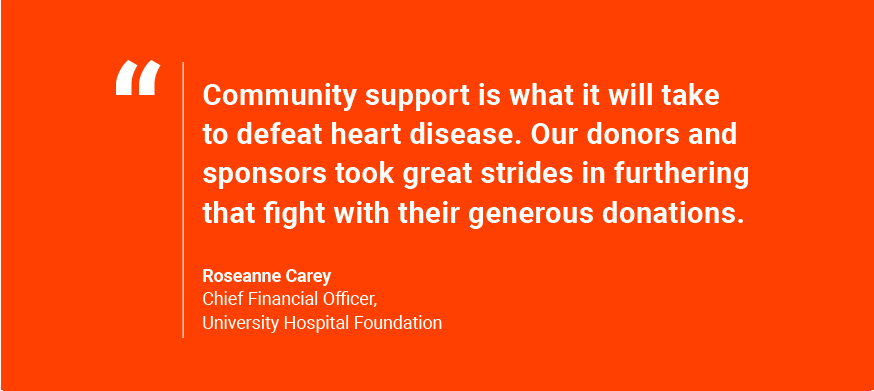
Events
Every year, the University Hospital Foundation offers a range of fundraising events to bring the community together in engaging, exciting and heartwarming ways in support of the University of Alberta Hospital. From our quarterly Virtual Expeditions to our annual Festival of Trees, our events raised more than $2.8 million towards furthering health care here in Alberta and beyond.
Full House Lottery

For the past 29 years, the University Hospital Foundation and the Royal Alexandra Hospital Foundation have partnered together to host the Full House Lottery. More than $99 million dollars has been raised, with funds going towards the most pressing needs at northern Alberta’s two largest hospitals – the University of Alberta Hospital and the Royal Alexandra Hospital.
This year, our fundraising goals were focused on family-centred and elderly care by changing our hospital environments to enhance the health, well-being and safety of our patients, and ease the stress on families when their loved ones receive care in the hospital.
Festival of Trees

Back in person and re-imagined, the 2022 Festival of Trees, presented by Landmark Homes, kicked off in August with our first-ever summer event, Festival in the Garden, followed by the return of classic favourites like the Gala and Auction, sponsored by SUiL Management, Kim & Don Wheaton and the Shelley & Guy Scott Family Foundation, Silver Bell Soirée presented by Cantiro, Santa’s Breakfast presented by Volvo Edmonton and more.
In an incredible show of generosity, an anonymous donor gifted $1 million dollars towards our fundraising efforts. That gift, combined with support from our community, allowed us to raise a significant amount of funding towards the creation of the Neurological Rehabilitation Innovation Centre, an advanced research hub and state-of-the-art care centre for patients like University of Alberta masters student, Riccardo Baldini.
After a day of helping his cousin with a backyard greenhouse project, Riccardo went to bed and woke up the next day unable to use his left leg. In the middle of the night, a benign tumour in his spinal cord had begun to bleed. Despite several surgeries, Riccardo was paralyzed from the chest down.
“It’s shocking. Once you realize that you are going to be in a wheelchair, permanently…It’s devastating.” says Baldini, “I was 25 and never really thought about anything related to disability before.”
Neurological illness and injuries are a leading cause of disability in Alberta and around the world, with an estimated 28% of Canadians projected to be hospitalized with a brain injury by 2031. In cases of debilitating brain and spinal cord injuries, early access to advanced rehabilitation is critical to recovery. Currently, patients can wait up to 25 days to be transferred to an inpatient rehabilitation facility.
“I did everything I could to find places where I could train and do activity-based therapy. I was going on my own, putting electrodes on myself and trying to bike. The doctors tell you that your chances of walking again are close to zero, but they still keep hope. If you can get therapy within the first two weeks or month, you might have higher chances of recovering,” explains Baldini.
The Neurological Rehabilitation Innovation Centre will provide patients with early access to innovative treatments and state-of-the-art technology, getting patients the care they need when it is most critical. Led by University of Alberta Hospital physiatrist Dr. Chester Ho, the new centre will also serve as an advanced research hub for neurologic centres across North America.
“I am so grateful to everyone who gave so generously to the University Hospital Foundation’s Festival of Trees,“ shares Dr. Ho. “Because of you, we have taken a giant step closer to bringing a world class Neuro Rehabilitation Innovation Centre to the University of Alberta Hospital.”
“Our generous donors brought us more than 95 per cent of the way to our goal, all by celebrating the season and making a difference in the lives of every patient who comes to the University of Alberta Hospital for neurological rehabilitation.” said Dr. Jodi L. Abbott, President and CEO of the University Hospital Foundation.
Heart Month

Donations to the University Hospital Foundation, much of which came in through this year’s Heart Month, presented by Freson Bros., play a key role in supporting the Mazankowski Alberta Heart Institute (the Maz). Every year patients from across a catchment area of 6.5 million square kilometers, stretching from central and northern Alberta to the Northwest Territories, go to the Maz for some of the best cardiovascular surgery and cardiac care available.
One of those individuals is Kyra Maerz.
When Kyra was born to Amy and John Maerz in 2012, the doctors immediately noticed something was wrong – Kyra had a congenital heart defect.
“I had a fairly healthy pregnancy,” explains Amy Maerz, “Routine doctors’ visits, normal test results with no major concerns. So, when they told me Kyra had a heart defect that wasn’t detected in utero, we were surprised and scared.”
The doctors referred Kyra to the Maz. Known for its advanced technology and minimally invasive treatments for adults, infants and children, the Maz hosts two to three pediatric open-heart surgeries a day. Kyra had her first open heart surgery at two years old. Over the years, she underwent several more open-heart surgeries and other complex procedures at the Maz.
“Our family has felt so taken care of by the teams at the Maz,” says Maerz. “Many people don’t understand that the institute is full of specialists, providing some of the best care you can get in the world and it’s all right here, in Edmonton. Care from the Maz is what allows Kyra to live her life to the fullest.”
Donor support is critical to keeping places like the Maz equipped and staffed to handle the most complex cardiovascular cases. The tremendous philanthropic spirit of University Hospital Foundation donors came out this Heart Month, presented by Freson Bros., in spades, raising $560,000 towards the fight against heart disease. Held annually throughout February, Heart Month is a time when Albertans are invited to participate in a variety of heart-themed events and activities across the province and virtually from the comfort of their own homes in support of cardiac care. This year, activities included an online seminar that took the public behind-the-scenes to the Servier Virtual Cardiac Centre (SVCC), the only imaging centre in Canada able to provide 3D images of the heart; the Maz staff-organized Maz Move-A-Thon; and finally, the all-day radio event presented by Durabuilt Windows & Doors, Heart Pledge Day on up! 99.3.
“Community support is what it will take to defeat heart disease. Our donors and sponsors took great strides in furthering that fight with their generous donations,” said Roseanne Carey, CFO of the University Hospital Foundation.
